US Defense Chief Warns Iran 'We Will Defend Ourselves And Our Partners'
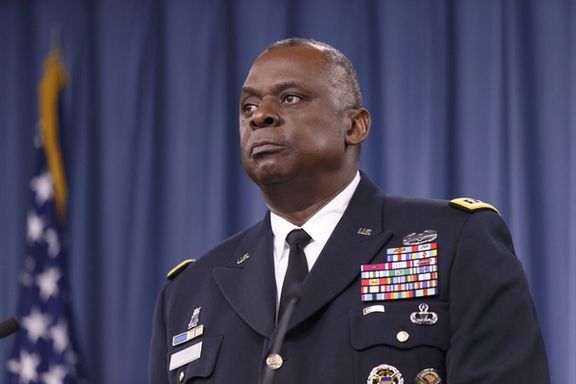
US Defense Secretary Lloyd Austin Wednesday told reporters that Iran presents serious security and regional challenges that go beyond its nuclear program.

US Defense Secretary Lloyd Austin Wednesday told reporters that Iran presents serious security and regional challenges that go beyond its nuclear program.
Speaking in Washington before his trip to the Middle East, Austin said “This trip comes at a time when Iran is stoking tensions in undermining stability in the region.”
The US defense chief also reiterated the Biden Administration pledge not to allow Iran to acquire nuclear weapons. “We remain deeply committed to preventing Iran from gaining nuclear weapons. No problem in Middle East gets easier solved with a nuclear-armed Iran, and that's why we fully support the president's efforts to achieve a new diplomatic agreement with Iran over its nuclear program.”
But Austin warned the Islamic Republic about threats it poses in the region. “I'm going to be very clear. We will defend ourselves and our partners and our interests against threats from Iran or its proxies,” he maintained.
Multilateral nuclear talks with Iran are scheduled to resume in Vienna on November 29 after Tehran walked away from negotiations in June. Meanwhile it has been enriching more uranium to higher purity, narrowing the window to accumulating enough fissile material for a bomb.
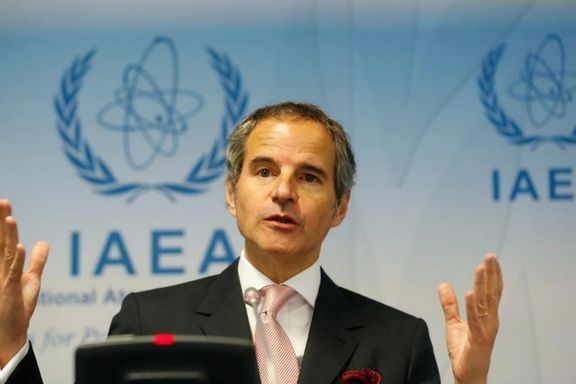
Rafael Grossi, head of the International Atomic Energy Agency (IAEA) will visit Iran Monday, state media said Wednesday, before the IAEA board meets November 24.
The reports cited Behrouz Kamalvandi, spokesman for the Atomic Energy Organization of Iran (AEOI). The visit would also come ahead of the planned resumption of talks in Vienna November 29 between Iran and world powers aimed at reviving Tehran’s 2015 nuclear agreement, the JCPOA (Joint Comprehensive Plan of Action) and as an IAEA report says Iran’s stock of uranium enriched to 60 percent has jumped nearly 80 percent in under three months.
Kamalvandi said Grossi would meet with Iran's Foreign Minister Hossein Amir-Abdollahian and AEOI chief Mohammad Eslami.
IAEA access to Iran’s nuclear program would be crucial in monitoring a revived JCPOA, but Grossi, along with Western states, has expressed growing concern since February 2020 when Iran reduced access to little more than required under the Nuclear Non-Proliferation Treaty (NPT).
IAEA full access
Grossi has also criticized as inadequate explanations given by Iran over traces of uranium found at two undeclared sites and relating to work carried out before 2003.
A more pressing issue for Grossi is restoring access to Iran’s Karaj plant under terms of a temporary arrangement first made in February. While IAEA inspectors have been allowed to service monitoring equipment elsewhere, Iran has barred this at Karaj on the grounds it is carrying out a security investigation after a June attack, widely attributed to Israel.
An IAEA report this week puts Iran’s stockpile of uranium enriched to 60 percent at 17.7kg, up from 10kg in September. While this is less than the 25kg claimed by nuclear spokesman Behruz Kamalvandi November 4, it represents a large increase in a level of enrichment close to the 90 percent regarded as ‘weapons grade.’
Tehran has also now 113.8kg enriched to 20 percent, up from 84kg in September. A purity of only 3.67 percent is allowed under the JCPOA.
It also emerged Wednesday, in an agency report, that Grossi wrote to Iran October 25 complaining over excessively invasive physical searches by security officials at nuclear sites.
If Grossi fails to make progress next week, the European JCPOA signatories – France, Germany, and the United Kingdom – may discuss with the United States options to raise Iran’s lack of cooperation at the IAEA board. Speculation they might do so at a board meeting in September waned once Grossi extended the temporary monitoring agreement, which the IAEA chief later insisted covered Karaj as well as other sites.
Reuters quoted a senior diplomat Wednesday that the IAEA, given its lack of access, did not know if Iran has resumed manufacturing advanced centrifuges – the devices used to enrich uranium – at Karaj, as was reported Tuesday by the Wall Street Journal citing “diplomats familiar with the activities.” The advanced centrifuges enable quicker and more efficient enrichment of uranium, thereby reducing the time it would take to enrich to 90 percent ‘weapons grade.’
Karaj parts installed at Ferdow
“According to one of the diplomats familiar with Iran’s program, Iran has installed the centrifuges whose key parts were produced at Karaj at Iran’s underground, heavily fortified, Fordow site,” the Journal reported. The diplomat quoted said there was no evidence the equipment had been diverted elsewhere but “as the number of unmonitored centrifuges increases, the likelihood for this scenario increases.”
The Vienna talks have been in abeyance since June when Iran stopped its participation. While the US has continued ‘maximum pressure’ sanctions introduced by previous president Donald Trump on leaving the JCPOA in 2018, Iran has continued to expand its nuclear program – notably in enriching uranium to 60 percent, far above the 3.67 percent allowed under the JCPOA, and in using advanced centrifuges banned under the deal.
The new government in Tehran, which includes critics of the JCPOA, has adopted a more assertive tone, suggesting that while Iran would like to see US sanctions lifted, a return to the nuclear deal is a lower priority that it was under the previous administration of President Hassan Rouhani.
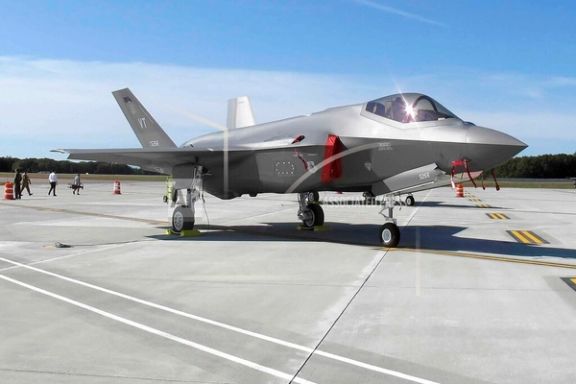
The US remains "fully committed" to a proposed sale of F-35 stealth fighter jets to the United Arab Emirates a senior US official has told the Associated Press.
Despite the Biden administration slowing down the deal, a senior American official overseeing arms exports has told The Associated Press on Tuesday that Washington remains committed.
Mira Resnick, a deputy US assistant secretary of state in the Biden administration, also told the AP at the Dubai Air Show that Gulf Arab partners aren't looking to purchase weapons from Russia as a hedge over American concerns about human rights in the region.
That's even as a high-level Russian delegation met Tuesday with Abu Dhabi's powerful crown prince, Sheikh Mohammed bin Zayed Al Nahyan, at an air show prominently featuring Moscow's competitor to the F-35, the Sukhoi Su-75 Checkmate.
"The F-35 is already in this region, whether it's Israelis flying the F-35, whether it's American F-35," Resnick said. "We would like the UAE to be able to operate the F-35 in a way that (they) can be our security partners and to deter threats, including from Iran."
The proposed sale of 50 F-35s came at the end of President Donald Trump's administration, rising out of a deal that saw the UAE recognize Israel.
The $23 billion sale also included armed drones and other defense equipment sought by the Emirates, a hereditarily ruled federation of seven sheikhdoms also home to Dubai.
After President Joe Biden came into office, his new administration put the arms sale and others on hold, in part over criticism of the UAE and Saudi Arabia over their yearslong war in Yemen, which has sparked the world's worst humanitarian crisis and rages on today.
Only Israel flies the F-35 in the region, part of its so-called "qualitative edge" granted by America after Israel fought several wars against its Arab neighbors since its founding.
Resnick said she'd heard no concerns from Israel or other allies over the F-35 sale to the Emirates, saying "We are fully committed to the F-35 and transferring the F-35, which is a game changer for the Emiratis."
"We are working with them as we speak to make sure that there are clarifications to the various assurances that were made to the previous administration."
Biden himself pledged during his campaign to make Saudi Crown Prince Mohammed bin Salman a "pariah" after US intelligence agencies said they believe he ordered the 2018 killing and dismemberment of Washington Post columnist Jamal Khashoggi.
"We have worked with with Saudi Arabia to make sure that they are able to defend themselves. We know that there are complications in... this relationship and in relationships around the globe," Resnick said.
"But we continue to reinvest and make sure that they can invest in their own defense."
Russia similarly has sought to make an impression at the show, flying a new attack helicopter and showing off the Checkmate fighter jet in a music-video-style presentation to journalists on the tarmac.
But Resnick dismissed that effort, saying "we have not seen any strategic competitor be able to fill the kind of role that we play here in the region."
Report by AP
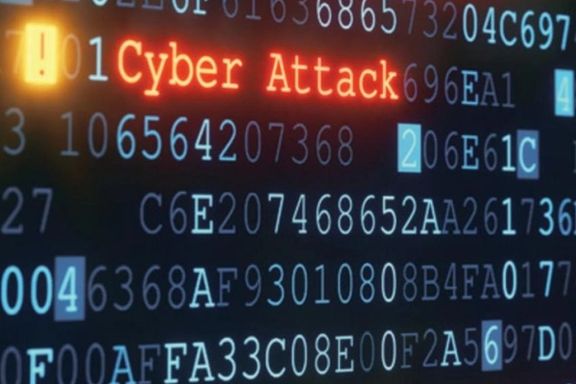
United Against Nuclear Iran (UANI), an advocacy group has said it was the target of Iranian hackers, calling on the US impose sanctions on those responsible.
In a statement on Tuesday, UANI, based in the United States, said it suspected that APT35, also known as Charming Kitten, a well-known Iranian hacking group launched a series of cyberattacks, “Specifically targeting its leadership and members of its Advisory Board.”
UANI CEO Ambassador Mark D. Wallace was quoted as saying, “Those responsible managed to procure data outside of the public realm, impersonated our leadership in communications with former senior officials of the US government, and attempted to harvest Gmail credentials.”
He added that UANI took immediate action upon discovering these attacks “and has notified the relevant law enforcement authorities to request a criminal investigation.”
The group urged the authorities to investigate the incidents and for the US “to enhance its cyber security cooperation with its friends and allies. UANI further urges the Biden Administration to impose fresh economic sanctions against those responsible.”
UANI added that such attacks will not deter it “from achieving its goal of ensuring the regime fails in its pursuit of nuclear weapons, ends its support for terrorism, and stops its oppression of the Iranian people.”

US President Joe Biden and China's Xi Jinping discussed harmonizing their positions ahead of the Nov. 29 Iran nuclear talks, a top US official said on Tuesday.
Officials from Iran and the six nations that struck the pact - Britain, China, France, Germany, Russia and the United States - will meet in Vienna to see if Tehran and Washington can agree to resume compliance with the deal under which Iran curbed its nuclear program to gain relief from US, EU and UN sanctions.
In 2018 then-President Donald Trump withdrew the United States from the pact among the major powers and Iran restoring harsh US sanctions, prompting Tehran to begin violating its nuclear restrictions about a year later.
"The two presidents had the chance to talk about how we can align our perspectives heading into that meeting so that the P5+1 is united in dealing with Iran and trying to pave the way for a return to the (deal)," White House National Security Adviser Jake Sullivan said in a virtual think tank appearance.
While China favors reviving the agreement, it has tended to place the onus on the United States, rather than Iran, blaming Washington for having abandoned the deal and giving Tehran an economic lifeline by buying Iranian oil despite US sanctions.
Report by Reuters
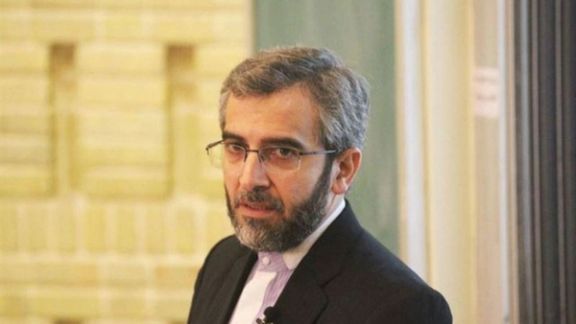
China’s foreign ministry has announced that it held a meeting on Monday with Russian and Iranian diplomats over nuclear talks scheduled to resume in Vienna.
The statement on Tuesday said that Vice Foreign Minister Ma Zhaoxu held a video conference with Russian Deputy Foreign Minister Sergei Ryabkov and Iranian Deputy Foreign Minister Ali Bagheri-Kani.
“The three sides exchanged in-depth views on the Iranian nuclear issue and reached broad consensus. China, Russia and Iran will continue to strengthen coordination and cooperation, ensure that the talks on resuming compliance with the Joint Comprehensive Plan of Action are on the right track, and strive for positive results as soon as possible,” the statement said, without providing any further details.
The Vienna talks suspended by Iran in June are set to resume in less than two weeks, with Iran presenting a much tougher posture, demanding all US sanctions to be lifted at once and also guarantees that no future US administration would withdraw from an agreement.
Six rounds of talks from April to June were focused on how the Joint Comprehensive Plan of Action (JCPOA) could be restored, including which US sanctions would be lifted and the sequence of mutual steps in reviving the agreement.